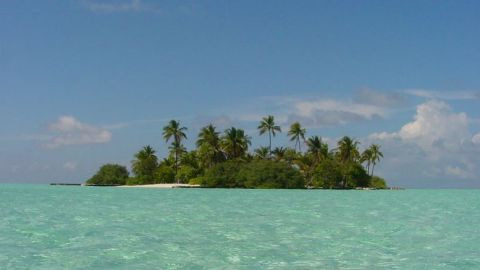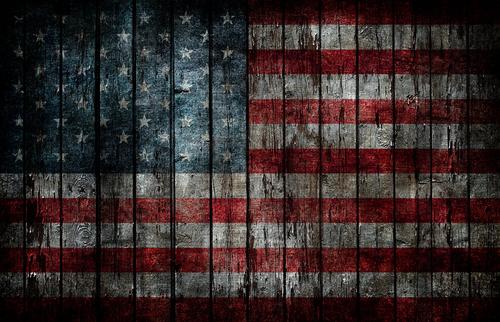Maldives: A Moderate Islamic State or a Taliban State?

The dramatic decision by the Maldives Government to close down tourist hotel health spas – following recent noisy protests that claimed they were ‘un Islamic’ – provoked fairly predictable headlines in some of the Western media. Best was the tongue in cheek concern in the London Evening Standard that multi millionaire British heiress, Tamara Ecclestone, might have to alter her travel plans, having trilled on at length in glossy magazines about her planned holiday massages in Maldivian tourist resorts. Unsurprisingly perhaps, there was rather more to the spa banning story than the flurry of excitable newspaper headlines might have suggested. For no sooner had the order to close the spas been made, it was then rescinded by the Government.
The ultimate decision was then passed on to the Supreme Court for final adjudication. The Maldivian tourism industry heaved a collective sigh of relief, and the Maldives President, Mohammed Nasheed, closed his office door for the evening, quietly confident that he might just have won an almighty PR victory over some of his conservative opponents. Next year, 2013, is election year and barring economic calamity over the next few months, opponents of the President appeared to have played most of their big cards.
For the Maldives, a scattered archipelago of over a thousand islands, two hundred of which are inhabited, in the Middle of the Indian Ocean, and home to 313,920 people, now stands at the cross roads. Should the island State, which gained its independence from Britain in 1965 retain its 800 year old allegiance to a fairly liberal blend of Sufi and Sunni Islam, or should it resist the encroachment of what some in the country see as a Western decadence, and adopt a stricter interpretation of the Islamic faith? “This”, says a supporter of President Nasheed “is now a struggle between different visions of the Maldives. Bluntly, do we want a moderate Islamic State or a Taliban State?”
On Wednesday, it had been expected that the Supreme Court might be forced to make some kind of official and ground breaking declaration as to exactly what tenets of Islam were appropriate to the Maldives. But at the eleventh hour, the court edged back from its own massive leap of faith. This decision, has for the time being at least, been put on hold. It had all looked very different back at the end of December. Then President Nasheed and his supporters were beginning to feel embattled, surrounded by an ever noisier and more confident political opposition, that Nasheed believed had deliberately joined forces with religious conservatives in order to bring him down. And then the UN Human Rights Commissioner, Navi Pillay came to town. She used her speech to the Maldivian Parliament to deliver an unusually blunt message to those who would bring Sharia Law to the Maldives, declaring that elements of it conflicted with human rights. It was a brave speech, but one in retrospect the President and his supporters would probably rather she had delivered somewhere else during her visit. For it provoked a storm of protest with Opposition supporters noisily demonstrating with placards that declared ‘Down with the UN!’ and ‘Pillay Go Home!’
Despite being divided amongst themselves the Opposition parties still hold a majority of seats in the Majlis, and Pillay’s speech provided an opportunity to turn up the heat of bubbling resentment against President Nasheed’s Government amongst conservative religious groupings. Opposition leaders, including the octogenarian former President Gayoom, who maintained absolute rule for over thirty years, had thrown their weight behind a small number of religious leaders demanding the imposition of Sharia Law, and the banning of health and massage spas, as well as the sale of alcohol and pork to tourists. The spas are seen by some as little more than upmarket brothels. Joining him were representatives of the Adhaalath, or ‘Justice Party’, which gained around four per cent of the popular vote in the last elections.
On December 23rd a disparate group of conservative organisations organized a noisy rally of some four to five thousand people in the islands crowded capital of Male. This was widely billed by some of the President’s opponents as the Maldives ‘Tahir Square’ moment, when ordinary Maldivians would demonstrate their anger and disgust at a Government they accused of seeking to “wipe out the faith of the people by subterfuge”.
Prominent at the protest rally, and wearing a bandana which boldly declared ‘Defend Islam!’ was Gasim Ibrahim, the head of another Opposition party, the ‘Jumhorree’ or Republican Party. Coincidentally, Ibrahim is the multi millionaire owner of some of the Maldives hottest tourist destinations, which offer both alcohol and health spas to the tourists who come flocking to the islands paradise. A former Presidential candidate, Ibrahim is reputedly the Maldives wealthiest man and owns the Villa Group, the largest company in the Maldives. In 2009, he was arrested on charges of ‘corruption, but was later released without charge. An alternative rally organized by supporters of the President over the next couple of days managed to pull together around half the number of those who attended the Opposition protest rally. Nonetheless, Nasheed is confident that an overwhelming majority of Maldivians would much prefer existing Islamic practices and norms. “What I want is a tolerant form of Islam”, he told The National. “I am absolutely convinced that a majority of our citizens want to continue with our traditional form of Islam. We really won’t be able to achieve development by going back to the Stone Age. His speech at his own rally was rather more direct; “Should we ban music? Should we mutilate girls’ genitals? Should we allow nine year old girls to be married? Should we forbid drawing? Is this really nation building?
By acquiescing to one of the protestors demands – to close down hotel spas and massage parlours on the grounds that they are un-Islamic – Nasheed effectively, forced some of his political opponents such as Gasim Ibrahim to choose between their business interests and religion. “Theirs was an unholy alliance”, says a Nasheed supporter “and they have opted for their businesses”. While opponents of the President say that their demands have been deliberately distorted. “We are quite capable of distinguishing between health spas in tourist resorts and brothels in Male”, says one who protested in the capital back in December. And this may go to the crux of a deeper problem that does feed resentment – the segregation of the wealthy tourist resorts from local people. One of the President’s long time supporters and friends from his days in exile in Britain, David Hardingham says; “Many of the locals seldom mix with tourists, living Worlds apart – although I know the Government really wants to broaden the economic benefits to Maldivians and reduce the impact of extremism”.
Others lay the blame on recent protests partially at the door of Islamic preachers from overseas, who have recently visited the islands, and at the foreign funding of the more conservative religious schools. That said the political bid to harness a conservative religious base that probably at best amount to around ten per cent of the population appears to have backfired – for the moment at least. And something else is happening too. Open discussion of religion, long something of a taboo subject amongst Maldivians, is now taking place wherever people are gathered together.




